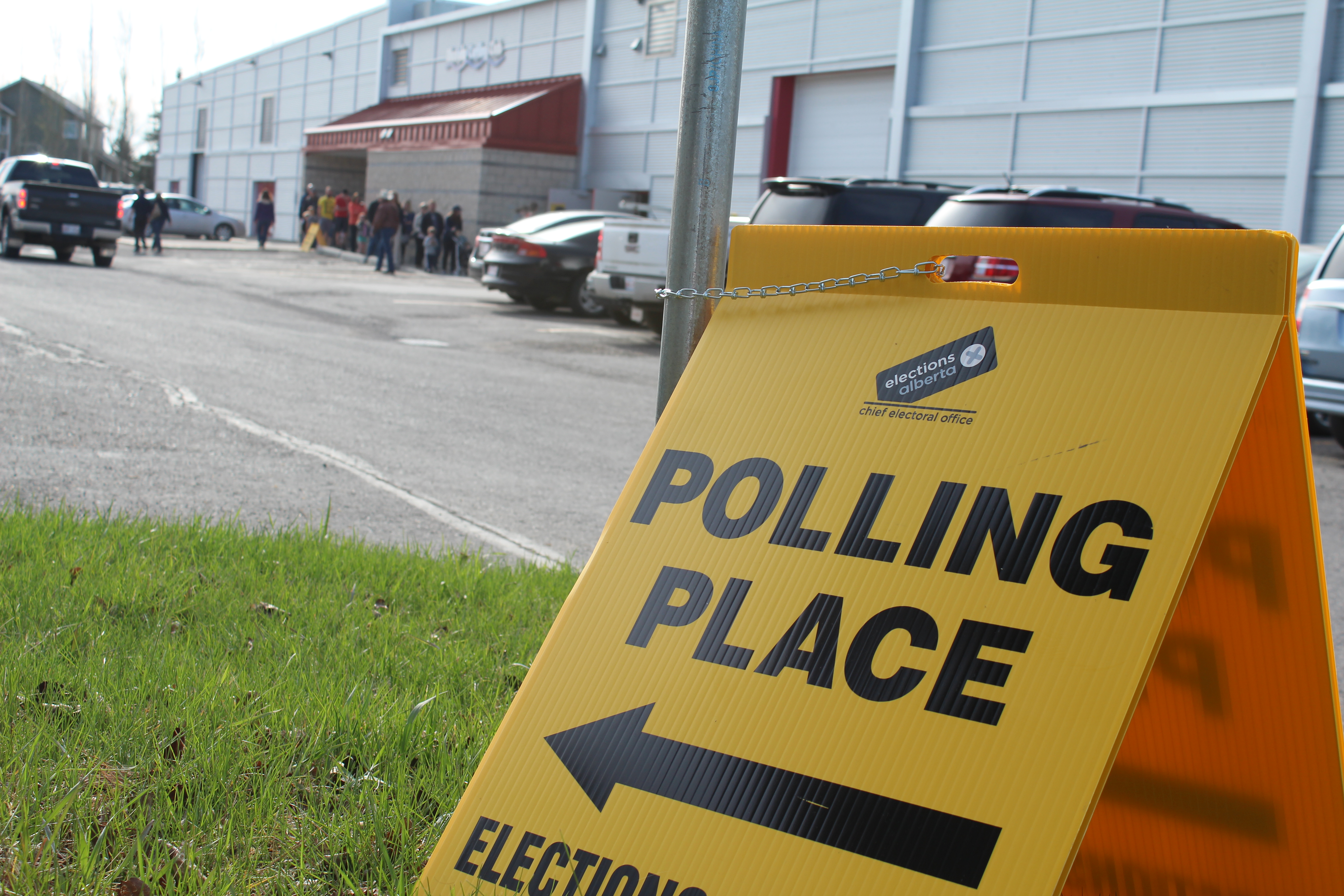Those unsolicited text messages, e-mails or phone calls you’ve received from Alberta’s political parties could be coming via personal information obtained through the province’s Election Act.
With a spring 2019 Alberta provincial election looming, the contact with voters is certain to ramp up.
While it’s written into the Alberta’s Elections Act, a local privacy expert says few, if any, Albertans would know their personal information is being given out for future partisan use.
“What’s more concerning is that the political parties then take all that information and they combine it in a database,” said Sharon Polsky, vice president of Rocky Mountain Civil Liberties, and president of the Privacy and Access Council of Canada.
“With technology, they’re able to collect information from a lot more sources than ever before.”
The look into how personal information could be accessed by Alberta political parties came as a result of a number of social media posts questioning recent text messages being sent from the United Conservative Party and how personal information might be accessed to make those connections.
“Hi, it’s Mary from the United Conservative Party. Do you agree that we need a change in government in Alberta? Reply: Yes No,” the most current message reads.
Elections Alberta’s Deputy Chief Electoral Officer Drew Westwater confirmed the personal information is collected as part of the Register of Electors for Alberta and they are required by the Elections Act to provide that information to registered political parties in Alberta, upon request.
Information that’s collected includes: Name, address, telephone number, “unique identifier numbers,” postal codes, gender, date of birth, date one became a resident of Alberta.

According to Westwater, the only information shared with political parties is name, address and contact number.
Sections 17 through 20 of the province’s Election Act governs how that information is used, but it can primarily be used for soliciting contributions, recruiting party members and communicating with electors.
Matt Solberg, director of communications for the United Conservative Party, said they access a variety of sources of information to engage Albertans in the lead up to an election, including using the information provided by Elections Alberta and also the Canadian Numbering Plan, which is a database of publicly-available phone numbers.
“The vast majority of Albertans contacted during our engagement campaigns, whether by email, text message, phone calls, or door knocking, are appreciative of the opportunity to hear from and provide feedback to the party,” Solberg wrote in an email response.
“But if individuals indicate that they do not wish to be contacted, we respect that and add them to a ‘do-not-contact’ list that the party maintains.”
Alberta Party executive director Mark Taylor said their party also accesses the Elections Alberta information list, but he said it’s not used for marketing purposes.
“We don’t send out text blasts to the entire province,” said Taylor.
“We’ve heard from voters; they aren’t overly impressed, and you see that quite a bit on social media.”
Taylor said they use it more for voter ID purposes instead of marketing. So, when you approach a household you can use that information to personally identify and greet the homeowner when door knocking, Taylor explained.
“Some people are shocked that we know their name, but we’re very forthcoming letting people know this is from Elections Alberta, that we’ve been given access to this data for partisan purposes,” Taylor said.
When asked if he thought it was OK that the data was being used in this way, Taylor said, it comes down to using it responsibly.
“When voters are getting contacted two, three, four – 13 times a day, they get really agitated and then they try to find out why their data has been shared,” Taylor said.
The Alberta Liberal Party also accesses the voter files from Elections Alberta for campaign preparation, according to president, Graeme Maitland.
“The Alberta Liberal Party, like all other political parties, has its own database of individual’s information that we gather from people donating to us, registering for our newsletter, and attending our events. We do not get information from third party companies so we do not send unsolicited emails,” Maitland wrote in an email response.
He added that they also provide opt out options, as do the other parties.
The UCP, Alberta Party and Alberta Liberals all said they take data collection seriously and volunteers with access to the info sign non-disclosure agreements.
The Alberta New Democratic Party was also contacted, twice, for the story and although a response was to be provided Monday, no response was returned by the time this story was published.
For comparison, the City of Calgary also confirmed that the information they collect for voter registration is also made available to candidates in the run up to an election period. They provide name and address only.
Polsky said she’s particularly concerned about the use of phone numbers, primarily because it’s the personal identifier for millions of people and she said they can now be tracked and pinged. She also said there are questions around required and volunteered information.
If voters are registering and the information boxes need to be filled, they typically fill them, Polsky said.
“People don’t question because we’re taught from day one not to question,” she said.
And she doesn’t believe this kind of activity will change any time soon.
“Unless and until there is law, or regulation, to require better behaviour, there’s nothing compelling tech companies or political parties – any organization – there’s nothing compelling them to do better, or properly or ethically. she said.
“They know where that grey line is.”
Editor’s note: This story has been amended. The original piece quoted the Local Authorities Election Act, which included seperate or public school resident. That is municipal. The Election Act does not ask school board affiliation.


